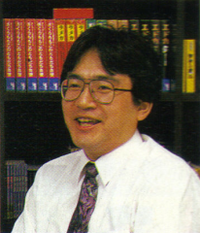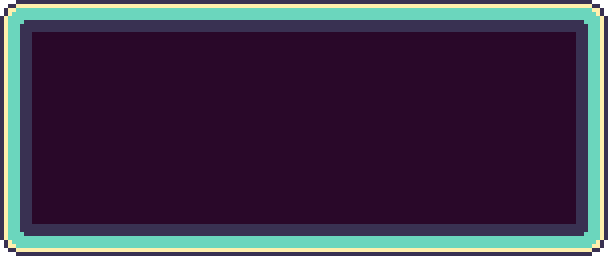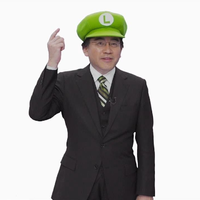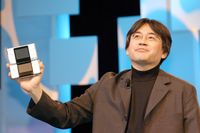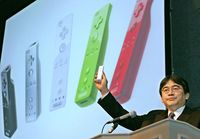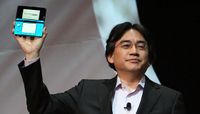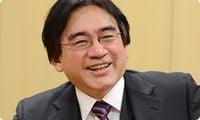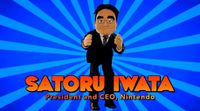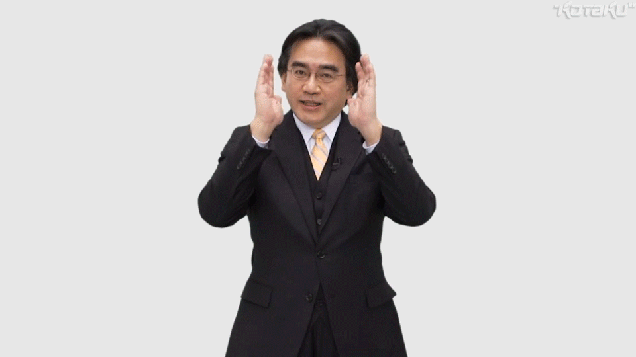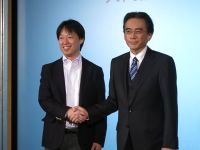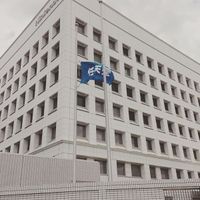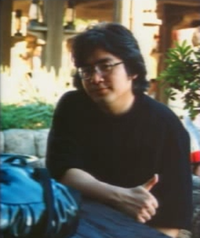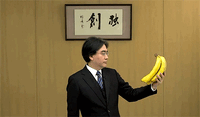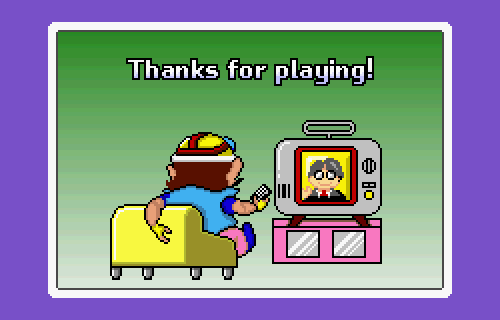The 'Shroom:Issue 100/Please Understand: A Satoru Iwata Memorial: Difference between revisions
(Created page with "__NOEDITSECTION__ __NOTOC__ <noinclude><div class="shroomsummer shroomcursor shroomthumb staff shroombg staff"></noinclude><div class="right"><h2 style="font-family:Kunstler S...") |
No edit summary |
||
| Line 220: | Line 220: | ||
[[File:ShroomIwataThanksForPlaying.png|center]] | [[File:ShroomIwataThanksForPlaying.png|center]] | ||
</div> | </div> | ||
<noinclude><center>{{shroomnav2015|100|summer|S1=|G1=}}</center>{{Shroomfooter}}</noinclude> | <noinclude><center>{{shroomnav2015|100|summer|S1=The 'Shroom Spotlight|S2=The 'Shroom Achievements|S3=Poll Chairperson Address|S4=Introducing Poochy|G1=Ten Things|G2=On the Subject of Mafia|G3=Transgenderism in Video Games|G4=Gettin' Jiggy With It|G5=Smg2Daisy's Galactic Orchestra|G6=Mario's Celebratory Diorama|G7=Porplemontage Interview|G8=Bonehead Toppings|G9=A Look at Competitive Melee|G10=Pokémon Evolution|G11=Fallout Shelter|G12=Ultimate Character Tournament|G13=Art Contest|G14=Mother 3 Musings|G15=From 2007 With Love|G16=Fresh From The Past|G17=Missing Signature Moves|G18=Castle Toad's Chatty Throwback|G19=Mario 30th Anniversary|G20=The 'Shroom Mafia III}}</center>{{Shroomfooter}}</noinclude> | ||
Revision as of 00:36, July 19, 2015
Please Understand: A Satoru Iwata Memorial
by The 'Shroom Core StaffEarly Life and Career
If there’s one thing I myself remember about grade school and high school, it was that my friends were always playing some type of games on their calculators. We didn’t need professional graphing calculators until we got to high school, but I do remember one guy had an old TI-83 that he would occasionally show off as being able to send messages, type entire sentences, and play basic games. Looking back now, we probably owed some of those good times to Satoru Iwata, even though he didn’t manufacture the fancy TI-84’s we use today.
Satoru Iwata was born on December 6th, 1959, and was raised in the Hokkaido prefecture in Sapporo, Japan. His father was a municipal mayor as he grew up, and Iwata-san showed a very early interest in designing and creating video games, his own first experience with the medium being Pong. During the time he was in high school, he created a simple baseball simulation number game for himself and his classmates to play with an HP pocket calculator, and worked on other video-game projects during his free time as a hobby, much like other beginning software engineers do today. He also spent a lot of time in computer stores with his friends, often thinking about how they could make the personal computers play video games like they had created on their calculators. Despite his family having some reservations about him wanting to make video games as a career, Iwata-san was admitted into the Tokyo Institute of Technology and studied computer science.
While he was at university, Iwata-san was able to intern with Commodore Japan, and got a first-hand look at the design while he worked with their head software engineer. After graduating from TIoT, he shared an apartment with several friends, all of whom shared an interest in game design. As Iwata-san stayed to study further at TIoT, he and his friends watched as their small group of dedicated budding engineers became a little company known as HAL Laboratory, named after the sentient computer in "2001: A Space Odyssey". When Iwata finally got a full-time job in 1980, he became the company’s fifth employee.
HAL Laboratory
When I was growing up and becoming familiar with the companies and branches that produced and developed Nintendo games, there was always one logo that stood out to me. I always enjoyed having the ability to turn on my Pokémon-themed Nintendo 64, with the Super Smash Bros. primed-up and ready to go, but I very much liked being greeted with the image of a sleeping dog (admittedly, I am really, really fond of dogs, so I am pretty biased). Over time, as I became more knowledgeable about Nintendo in general, that logo stuck with me, along with the company name that would accompany it: HAL LABORATORY, INC. Truthfully, I always attributed HAL as Masahiro Sakurai's company and just left it there. It was not until the day of Satoru Iwata's passing that I discovered how big of a role he truly played in the success and upbringing of both HAL Laboratory and the video games they produced.
Satoru Iwata first began his lifelong career in video gaming when he took a job at HAL Laboratory as a programmer during his college years, and would eventually work full-time after graduating in 1982. Shortly after, Iwata-san would become HAL’s coordinator of software production, and ten years later, Iwata-san would be promoted to president of HAL. Iwata-san took over an extremely difficult situation at HAL, as the company was on the verge of bankruptcy, but Iwata-san was able to straighten the ship over the course of a few years and returned HAL to its rightful place as one of the key second-party developers.
Over the next couple of years after becoming president of HAL, Iwata-san was directly involved in the creation of two major video game franchises. The same year Iwata-san was promoted, Kirby’s Dream Land was released for the Game Boy, marking the beginning of both the franchise and the adorable, squishy pink blob himself. Although Satoru Iwata himself did not design the character (that honor belongs to Masahiro Sakurai), the idea for the game came up because he wished to create the ultimate game for beginners. He, alongside Shigeru Miyamoto, was ultimately directly involved in producing the majority of Kirby games developed by HAL, including Dream Land, Adventure, Dream Land 2, and Super Star. Years later in 1998, Sakurai was interested in creating a fighting game using four players, and pitched the idea as Kakuto-Geemu Ryuoh (Dragon King: The Fighting Game) to Iwata-san. The game, which was ventured into in-depth during an Iwata Asks session with Sakurai, was programmed completely by Iwata-san. Describing getting into the project, Iwata-san stated, “I felt something special about this title from the very first moment I started programming for it. Even so, we had no idea it would grow to such epic proportions.” Before long, the game gradually changed, and the production team was allowed to use Nintendo characters, and the project became known as Super Smash Bros..
Satoru Iwata was also responsible for, literally, saving EarthBound from cancellation. In an interview featuring Iwata-san and Earthbound creator and author Shigesato Itoi, the development duo describe just how valuable Iwata-san’s input in the project actually was. EarthBound, which had been in development for four years prior to Iwata-san’s joining of the project, was not even close to being finished. Iwata-san, taking what had already been completed by Itoi’s team, successfully completed programming (alongside his team) the map scrolling within a month. With the majority of the individual components already finished, the HAL Laboratory team and the APE team managed to piece together the entire game within half a year with Iwata-san’s help. Another half a year was spent on refining the game, and the lovable, quirky, and all-around silly JRPG game titled Mother 2, or EarthBound, was released.
Even during his time at HAL Laboratory, both as a programmer and president, Satoru Iwata assisted in the development of several different games. He freelanced with Nintendo a few times, and helped program the classic NES title Balloon Fight, a game which has enjoyed recent publicity as a result of being represented in games such as Super Smash Bros. 4, Nintendo Land, and even appearing in a challenge at the Nintendo World Championships. He even worked on Pokémon Gold and Silver for the Game Boy Color during this time, programming the game to allow even more data on the cartridge. This basically allowed the developers to add the entire nation of Kanto into the game. Iwata-san even helped in the founding of Creatures, Inc., who are known for producing Pokémon card games and toys, along with some of the spin-off Pokémon titles. Iwata-san, essentially, was responsible for some key Nintendo franchises even during his tenure at HAL Laboratory.
Satoru Iwata spent nearly 20 years at HAL Laboratory, spending half of that as president, and the entirety of it as a programmer. He practically saved the company from going under, and offered us so many years of enjoyment, whether it was from games from HAL (EarthBound, Kirby, or Super Smash Bros.), or even any that he helped Nintendo with (Balloon Fight and Pokémon), Iwata-san succeeded in doing what he set out to do, and loved every minute of it. Ultimately, at the end of his tenure with HAL Laboratory, it paid off in the end.
Promotion to President
Sometime in 2000, Satoru Iwata was promoted as the head of Nintendo's corporate planning division, where he began a close working relationship and eventual friendship with the company's then-president, Hiroshi Yamauchi. Yamauchi-san taught Iwata-san a great deal about the corporate world and the business ideals of Nintendo, encouraging him to always look forward, take risks, and never dwell on failures for long, a lesson in positive thinking that Iwata-san carried with him for the remainder of his career. Iwata-san's big break came when Yamauchi-san resigned from his position, promoting Iwata-san to the role of Nintendo of Japan's CEO and President on May 31st, 2002, giving a very strong and detailed explanation for why Iwata-san was his choice as his successor:
- "The reason for Iwata-san’s selection comes down to his knowledge and understanding of Nintendo’s hardware and software. An executive, regardless of his vast successes, is fundamentally an executive, who doesn’t intimately understand our products. Within our industry there are those who believe that they will succeed simply because of their successes in other ventures or their wealth, but that doesn’t guarantee success. Looking at their experiences since entering the gaming world, it's apparent that our competitors have yielded far more failures than successes. It's been said that Sony is the current winner in the gaming world. However, when considering their 'victory', you should remember that their success is only a very recent development. Though Sony is widely held to be the strongest in the market, their fortunes may change. Tomorrow, they could lose that strength, as reversals of fortune are part of this business. Taking into account the things I’ve encountered in my experiences as Nintendo president, I have come to the conclusion that it requires a special talent to manage a company in this industry. I selected Iwata-san based on that criteria. Over the long-term I don't know whether Iwata-san will maintain Nintendo’s position or lead the company to even greater heights of success. At the very least, I believe him to be the best person for the job."
With that, Iwata-san became the first ever president and CEO of Nintendo that wasn’t in some way related to the founding family of Nintendo, Fusajiro Yamauchi. Iwata-san is unique amongst Nintendo presidents because he was actually a game designer who, as illustrated in the previous section, started his professional career in the 1980s and was instrumental in helping make some of Nintendo’s most recognizable early games such as Balloon Fight. Since, for the majority of his career, Iwata-san worked as a developer in the 2nd party studio HAL Laboratories, he maintained a close working relationship with them as a consultant even following his promotion. And just on a personal note, the instrumental improvements he made to Pokémon Gold and Silver is probably my personal favorite accomplishment of Iwata-san, because I remember playing through Pokémon Gold and Silver dozens of times each time being as fun as the last. This hands-on approach and knowledge of the inside development process for producing games would certainly come in handy on a practical design level, especially given his promotion coincided with a time when Nintendo's financial returns for the Nintendo GameCube were significantly far behind the sales of Sony's PlayStation 2 and Microsoft's XBox.
Iwata-san, however, was always open to a challenge and listened carefully to his mentor's words on always tackling risks head-on, and he would go on to create two huge successes when he decided that he would focus on making games that were more accessible to everyone. This payed off greatly with the Nintendo DS and the Wii, which greatly expanded the Nintendo userbase and improved sales by an incredible level, as elaborated in the following section. Sure, while the 3DS and Wii U haven’t been quite so successful, Iwata-san has still worked so hard to make himself accessible to the fan base and make the quality games that everyone expects of Nintendo. And for that, Iwata-san... we thank you.
Accomplishments as President and CEO
Note from Turboo (talk): ...I'm still shocked and heartbroken over Iwata-san's recent passing. At only 55, he had contributed so much to Nintendo and to the industry as a whole... between opening up markets, being one of the faces of the company, personally stepping in to help development, and tons more. I'd like to discuss his time as President and CEO, and all the ideas he brought to the table.
As mentioned in the previous section, Satoru Iwata joined Nintendo in 2000, after acting as the president of HAL Laboratory since 1993. He was appointed as Nintendo's president on May 31st, 2002, after Hiroshi Yamauchi's retirement. At this point, they were in a bit of a slump; the GameCube, while having positively-received games, had extremely poor sales, only managing to beat out the Dreamcast. Meanwhile, the Game Boy Advance enjoyed moderate success, albeit with no other true competing handhelds on the market. Iwata-san realized that with the waning GCN sales, a push toward more casual markets had to be made; and so, on November 13th, 2003, Nintendo announced they would be releasing another handheld in 2004, originally intended to compliment the GBA and GCN, not succeed them.
As is evident, it was a huge success; as of September 30th, 2014, it has sold 154.01 million units worldwide (making it the best-selling handheld to date!). It also introduced thousands of people to gaming through the expansive library offered by the system. Additionally, it marked Nintendo's first foray into Internet-enabled play, which, while not perfect, was very important to series like Mario Kart and Pokémon. More than anything, Iwata-san's efforts with the console paved the way for casual and mobile markets as we know them today. Regardless of how you feel about them, they have proved to be extremely successful and profitable.
But Iwata-san wasn't content stopping there, of course! The Wii was shown at E3 2005 (the concept for it was conceived back in 2001). However, the controller was not shown as designers still "had some troubleshooting to do." Later that year, Iwata-san personally unveiled and demonstrated the controller design during September's Tokyo Game Show.In an opinion piece he wrote in 2006, he mentioned that the idea behind the Wii was not to focus on the presentation and graphical enhancements, but rather "the physical and emotional ways people interact with [Nintendo's] games". This translated into a pick-up-and-play approach, which proved wildly successful; the pack-in game, Wii Sports, captivated the public, along with varied other titles. If the DS paved the way for new markets, the Wii cemented them, with 101.52 million units sold as of March 2015.
...And now we're here. One of Iwata-san's last public statements was about E3 2015, translated as "Thank you for your feedback. We hear you and we are committed to continuing to meet your expectations". He also chaired the 75th Annual General Meeting of Shareholders on June 26th, where he personally answered every single question.
Today, Nintendo released Genyo Takeda's eulogy for Iwata-san... in writing and researching this section, I've found out a lot about him, and his compassion and dedication never cease to amaze me. Iwata-san left a legacy; one that got the company back on its feet, one that touched the lives of millions of fans, and one that he seemed truly happy with. Throughout his time at Nintendo, he was always seen smiling; in interviews, his passion for the industry was obvious. It is my hope that Nintendo continues to honor him as best as they can.
“On my business card, I am a corporate president. In my mind, I am a game developer. But in my heart, I am a gamer.”
Iwata Asks
In the wake of Mr. Satoru Iwata's untimely and tragic passing, Yoshi876 and I would love to discuss Iwata Asks, a wonderfully charming series of developer interviews hosted by Satoru Iwata himself. For nearly a decade, Iwata Asks have played an important role in defining Iwata-san as a personality in the eyes of Nintendo fans, and the sheer scope of what Iwata-san managed to cover with Iwata Asks speaks volumes about the kind of person he was.
In 2006, Nintendo had just announced their latest console, the Nintendo Wii, a revolutionary device that would eventually take the casual gaming world by storm and become the best-selling Nintendo home console of all time in the process. But before all of that would occur, one of the men behind the Wii's creation, the then-recently elected President and CEO of Nintendo, Satoru Iwata, felt that in addition to the initial announcement he wanted to publicly document the process of creating the Wii so that anyone with even a passing interest in such things could learn about the Wii's development and the ideas behind its creation. Using his position and relations with Nintendo employees, Iwata-san decided to publish a series of interviews with key developers of the Nintendo Wii on Nintendo's homepage over the course of two months, with Iwata-san leading the interviews himself.
Iwata-san believed that having the interviewer centrally involved in the projects being discussed would allow for deeper discussion than an interview being led by an outsider. Knowing most of the key decisions himself, Iwata-san was able to uncover new details about how the developers overcame challenges in their development rather than simply focus on the surface-level design choices for the entire interview (later, Iwata-san would continue to apply this philosophy to the rest of his developer interviews, but we'll get to that soon). The result was a unique and certainly more personal perspective on the development of the Wii and a few of its announced titles such as WarioWare: Smooth Moves, Wii Sports and The Legend of Zelda: Twilight Princess.
The interviews were a hit, so in 2007 (starting with Super Mario Galaxy) Iwata-san continued to interview various Nintendo creators and publish them under the title '社長が訊く' or 'President Asks' (referring to his position as company president), which was changed to 'Iwata Asks' when the interviews were translated and published in English.
In a typical Iwata Asks, Iwata-san would sit at a round-table with his coworkers and delve straight into in-depth discussion about their latest project, eventually resulting in many (laughs) and interesting facts about the development of these titles being evolved over the course of the interview, simply because of the great connections Iwata-san had with his employees. And of course, not only are the discussions downright fascinating, but due to the factual nature of these interviews our own wiki frequently uses them as invaluable sources of information. From Iwata Asks we now know that:
- Super Mario Galaxy was inspired by the cancelled Super Mario 128 and that Shigeru Miyamoto liked the idea, and asked the EAD Tokyo to make the game after they completed Donkey Kong: Jungle Beat.
- Bowser's original design on the boxart of Super Mario Bros. was loosely based on an ox as a homage to the antagonist, Gyū-Maō, in the film Journey to the West.
- The placeholder character for Super Mario Bros. was a 16x32 square, and Takashi Tezuka suggested that Mario be the playable character due to the success of Mario Bros.
- Mario wasn't added into Super Mario Kart until three to four months into development, and the only reason he was was because the developers wanted to see what this would look like and they decided that it was better than the "generic guy in overalls" character they had.
- The Goomba sprite in Super Mario Bros. was developed as Koopa Troopas were said to be too tricky as a first enemy by play testers, and that its moving animations are just it flipped from side to side as it was added late into development.
- The development for Super Mario Galaxy 2 started immediately after the release of Super Mario Galaxy and was originally titled Super Mario Galaxy 1.5.
- The development of New Super Mario Bros. 2 featured a program called "Mario Cram School", and its intention was to teach other teams about the development of Mario games.
- Luigi was dropped from Super Mario 64 due to technical limitations. Had Luigi been in the game it would have had to have featured less diverse and elaborate levels.
- The intention of Super Mario 3D Land was to act as a jumping point for the players of the 2D Mario games, who didn't want to play the 3D installments.
- And that Super Smash Bros. originally featured no Nintendo characters. It was Satoru Iwata's idea to include them as he felt a home console fighting game needed "atmosphere".
But of course, it's not only about the facts. In all of his 120+ Iwata Asks, both Iwata-san and the developers he interviews are clearly enjoying themselves as they discuss their passion for video game development, and the quirky banter between them as they delve into odd stories about the games they've developed shows that Iwata-san did not want to be bound by his high-ranking position at Nintendo. He wanted to actively listen to and discuss the hardships and triumphs of their developers on every level, learning their stories and inspirations in the process. The love is clearly there, and it gives Iwata Asks the delightfully unique Nintendo touch that makes them a joy to read for Nintendo and non-Nintendo fans alike.
We hope that one day Nintendo will be able to honour Satoru Iwata's work with a worthy successor that focuses on the hearts of the developers first and foremost almost as well as Iwata Asks has. There certainly isn't anything like it.
The full archive of Iwata Asks can be found here.
Nintendo Direct
So Iwata Asks became a huge hit among the gaming community, and allowed people to see Iwata-san as a real human being with a close relationship with his employees, not just a big business executive who knows how to look good in interviews. But that was just with his staff – what of the community directly? Well, directly certainly became the key word in this, since on October 21st, 2011, Iwata-san began a new series of video presentations delivered via online streams every two or so months, titled Nintendo Direct. This new format allowed the community to get updates and news on Nintendo products straight from Iwata-san himself, as he stood before the audience and communicated to them directly, which provided a much more personal approach to status updates and announcements at the company. Exclusive to Japan on its first few releases, it began to expand out into other regions at the start of 2012, and while Iwata-san dominated the Japanese releases of Nintendo Direct, other regions were treated to their respective heads of staff presenting a typically smaller, more streamlined presentation; e.g. Reggie Fils-Aime and Bill Trinen hosted Directs in North America, while Hiroyuki Fukuda hosted them in South Korea.
However, Iwata-san would often show his chirpy face in other regions when time came to release big international Directs, typically when there was a lot of new information to be divulged or around E3 time. Unlike other presenters from Nintendo of Japan, like Shigeru Miyamoto, Iwata-san had no need for a translator; while he spoke with an accent, he was perfectly fluent in English and spoke slowly enough to allow all of his English-speaking viewers the chance to hear news straight from his mouth. Nintendo Direct ended up becoming Nintendo’s primary platform for news delivery, even eventually being employed for their E3 presentations as in a huge shift away from live conferences, which allowed them to partake in pre-recorded skits. These include the Reggie vs. Iwata feature, one of the most bafflingly obtuse yet awesome ways to advertise Super Smash Bros. 4, and featuring him, Reggie, and Miyamoto-san as Muppet-style puppets, which was easily one of the best part of E3 this year.
See, this is why Iwata-san is remembered so fondly be everyone. It was in these Directs that he established himself as a cultural icon among the gaming community, with enough fun-loving quirkiness to balance out his professional demeanour; many jokes circled around the community inspired by Iwata-san’s charming mannerisms in the Directs, such as his apologetic catch phrase – and the namesake of this memorial article – “Please understand”; his forward hand gesture whenever saying ”Direct”; and of course, his famous contemplation over bananas. Often, executives create a persona or even can personality entirely to maintain professionalism at all times. Press releases with these people can be so droll and boring as a result, and can make any of their apologies or sympathies with the community seem insincere and more like a business tactic.
Iwata-san, on the other hand, built up a tremendous amount of goodwill among gamers for simply being himself; he didn’t need to maintain a professional attitude at all times, because that wasn’t who he was, and it certainly wasn’t how he wanted to represent his company. Iwata-san wanted to have fun, above all, and wanted all of Nintendo’s fans and players to indulge in that fun in kind; his kind-hearted, honest behaviour in Nintendo Direct built such a strong sense of communion and understanding, like he was simply the same as us… he just happened to have the skill and know-how to reach the top. Many people felt cared for and appreciated because of Iwata-san’s heavy involvement with his audience, and as much as people like to joke about his frequent use of “please understand”, these apologies always felt genuine. He always followed them with an explanation for the situation and what they intend to do to fix it, and he always placed an emphasis on the player... After all, it was about the gamer, and he wanted to ensure everything was…
Mobile Expansion
Whenever we think about Nintendo, smartphone games are most certainly something that doesn't come to mind. Ever since their transition to a videogame company, the Japanese firm had purely focused on console gaming and had even discredited a sector that will soon be making more money than the aforementioned consoles. In fact, last year Apple's earnings were expected to double Nintendo's by the end of 2015, and experts predicted the companies battling for control of the gaming industry would no longer be Nintendo, Sony, or Microsoft, but rather Apple and Android. However, a good leader would never let such an emblematic company practically drop out of the race; a good leader knows innovation and risk-taking will put you on top. This good – no, great – leader, was none other than Satoru Iwata, who had been following these two principles since he basically reprogrammed EarthBound by himself for it not to be cancelled. But Iwata-san knew innovating and taking risks within the company's area of comfort would only take them so far, so he decided to take an unprecedented step for Nintendo: to enter the smartphone gaming industry.
Iwata-san knew this move would be polemic, but he also knew it was necessary. The former Nintendo CEO was aware just porting games from their consoles wouldn't do the trick, and that they needed to think about the average mobile gamer. With this in mind, a partnership with mobile game developer DeNA was announced, and the decision was labeled as the "most drastic, bold shift in strategy Nintendo could have undertaken", by industry analysts. This all happened a few months ago, and the gaming giant is positive this gamble will redefine entertainment. In the days after the announcement, Nintendo's stock price jumped by 27%, a clear sign people around the world are seeing this as the company's next big break. The objective is clear: to get Mario, Link, and company to more screens worldwide, which, if executed properly, will in turn create more fans that might take the jump to console gaming.But Iwata-san was well aware this new era wouldn't come without obstacles. He knew Nintendo produces excellent paid console games, but the challenge was how to take this approach to a market where most games are free-to-play. For him, the solution was not to leave responsibility to DeNA, who have substantial experience in the field; the solution was to develop the games themselves and find the best way to adapt them to this different gameplay, fully aware a gamer at heart knows best what other gamers want.
New, exciting games will be based on the most popular Nintendo series, and there is no doubt all major app marketplaces will be fighting to get exclusives from our beloved company. With intellectual property any company would dream of, a terrific brand reputation, the possibility to create great second-screen experiences, and with enough cash to have bought Facebook ten times back in 2012, Iwata-san was certain Nintendo has the potential to become a top player on another market where it wouldn't be a pioneer, it would be a follower. But, no matter the outcome of the venture in this new market, Iwata-san will have set yet another precedent no one would have thought of.However, this doesn't mean Nintendo will forget console gamers. You probably already know a new console codenamed NX is in the works. As for when we will get more information on this, Iwata-san was hoping he could tell us more about it next year.
Illness
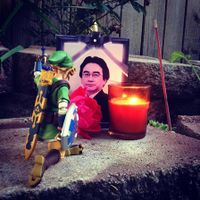
After this risky decision to start moving on to the mobile platform, Satoru Iwata was notably absent from Nintendo’s E3 conference in 2014 despite his strong media presence and involvement with the community earlier in the year. The only reason given was due to his doctor advising him not to travel, a vague statement which raised suspicions among gamers concerning his health. A few weeks later, he revealed his absence was due to having surgery to remove a tumour in his bile duct, a rare form of cancer that impacts the function of the liver and the body’s digestion. This happened to coincide with an important court case against Philips and the Annual General Meeting for stockholders, neither of which Iwata-san was able to attend due to the unfortunate timing of his surgery, however he expressed in a letter to his shareholders that he “came through [surgery] well” and was prioritising his swift recovery. All seemed well, as he continued to hold his Iwata Asks column and was a mainstay in the Nintendo Directs, so fans were hopeful his treatment was successful and Iwata-san would continue to be the same jolly, fun-loving guy he was known.
Spin ahead a year to 2015, and Iwata-san once again didn’t make a direct appearance in Nintendo’s E3 conference, instead appearing alongside Shigeru Miyamoto and Reggie Fils-Aime as a Muppet-style puppet in what was considered one of the most charming presentations ever shown at an E3. No one really thought much of it, however little under a month later on July 11th after a year-long battle, Satoru Iwata passed away at Kyoto University Hospital due to complications from the ever-growing tumour. The news didn’t reach the public until a few days later, when Nintendo released an official statement of his death on July 13th, noting Shigeru Miyamoto and Genyo Takeda had been promoted as the interim Representative Directors for Nintendo in the wake of Iwata-san’s passing.
This was a huge shock to the system for gamers across the world, to the point where many believed it was a cruel hoax. A man who seemed to be an ever-present figure in the video games industry was now suddenly gone, and gamers found it difficult to come to terms with such sudden news, given he was supposedly recovering nicely the last anyone in the public had heard. Gamers and prominent gaming figures rushed to social media to spread the news and pay their respects (as elaborated in the following section), most prominently on Twitter where the hashtags #RIPIwata and #ThankYouIwata began trending, and before long the sad truth of the matter hit everyone; he was gone. It’s honestly extremely hard for me to write this right now, even as someone who has little emotional connection to Nintendo as a company, a display of how impactful and far-reaching his influence and positive persona was.
Satoru Iwata was 55-years old when he passed away, and was succeeded by his wife, Kayoko Iwata. A private funeral service was held in his honour just yesterday on July 17th. Iwata-san's passing has served as a tragic reminder that even seemingly invincible celebrity figures aren’t immortal, and he will be sorely missed, however it has elaborated just how much he meant to the video games industry and its community.
Rest in peace, Iwata-san... Leave luck to heaven.
Tributes
Since the news of Satoru Iwata's passing broke, a lot of people have paid tribute to him through a number of different methods. His death has struck a chord with not only within the Nintendo community, but across the wider gaming community as a whole.Starting off, the flag at Nintendo HQ was flown at half staff on the day following Iwata-san's death.
Shigeru Miyamoto, current acting Representative Director of Nintendo and creator of many iconic series, including Mario and Donkey Kong, said:
- I am surprised at this sudden news and overcome with sadness.
- The entire development team at Nintendo will remain committed to our development policy which Mr. Iwata and we have been constructing together and to yield the development results which Mr. Iwata would appreciate.
Junichi Masuda, the composer best known for the Pokémon games, said:
- He was a man who understood Pokémon, and a great leader. When I visited the other day, he was well. I will pray for his soul from the bottom of my heart.
Earthbound creator Shigesato Itoi also posted a tribute to Iwata-san, on his own website, of which a translated version can be found here.
Masahiro Sakurai, creator and director of the Kirby and Super Smash Bros. series, made a tweet which translates as:
- Nintendo President Iwata has passed away. He was my boss at my last company, and even changing positions and locations he was the person who most understood me. As a hard worker and a virtuous person, he always quickly derived balanced summaries and proposals. I thought that he was the best possible leader. I pray for his happiness in the next world.
Nintendo of Europe President Satoru Shibata stated:
- Nintendo of Europe is today mourning the passing of Mr Satoru Iwata, Nintendo's Global President. It is difficult to put into words the sadness we feel at this time. Mr Iwata was a strong leader, a unique figure in the gaming industry and an important part of Nintendo's history. He was a visionary in every sense of the word and we will miss him dearly. Just as Mr Iwata challenged us to always push forward, we will ensure his legacy lives on through our ongoing work to always surprise and delight our fans. At this time our thoughts are with his family.
The official Playstation Twitter account tweeted:
- Thank you for everything, Mr. Iwata.
Shuhei Yoshida, Sony's president, said:
- He has given a great contribution to the development of the gaming industry. I will pray for Iwata's soul.
Phil Spencer of Xbox said:
- Sad day for Iwata-san’s family, friends, and gamers everywhere. His passion, creativity & leadership elevated our industry.
Geoff Keighley, Canadian games journalist and presenter, made a string of tweets in tribute:
- I am beyond heartbroken to hear about the passing of my friend Satoru Iwata. He was a gamer, a developer and a champion for our medium. RIP
- I first met Satoru Iwata at TGS in 2005 when I interviewed him for G4. He spoke in Japanese and showed off the Nintendo Wii controller.
- So at the end of the interview, after the cameras were off, he turned to me and started speaking in English.
- "Geoff, I really liked out interview. I can tell you are a gamer so I wanted to show you something." He turned the controller sideways.
- He held it like an NES controller with D-pad and the A B buttons. He smiled, I think to hint at Virtual Console. I'll always remember that.
- I felt a great connection with him then, he wanted gamers to know that Nintendo would always think of us. He was such an honorable man.
- His smile said so much. He was and is one of us. He loved game, and wanted to make the world a better place with them. And he did.
Popular webcomic Brawl in the Family, which ended last October, posted a picture in tribute to Iwata-san.
Video game designer Hideki Kamiya, formerly of Capcom and Clover Studio, now of Platinum Games, tweeted a picture of himself with Iwata-san, along with the words "In my heart forever".
Video game journalist Jim Sterling posted a video about Iwata-san's death.
Zelda Williams, actress and daughter of the late, great Robin Williams, tweeted:
- So sorry to hear about Mr. Iwata's passing. He was an unbelievable mind and talent, a passionate creative force. May he rest in peace.
YouTube Let's Player Chuggaaconroy posted this on Facebook:
- Been trying to write all the mountains of words I want to say about Iwata and I just can't do it. I always found it admirable how he, as a programming prodigy grew to run the company he loved so much. His presence made Nintendo feel like a place where anything is possible. Rest in peace, Iwata.
Finally, to quote some of the users of this website:
- GalacticPetey (talk) – "I just heard the news. I'm still kinda speechless. He just had this incredible charm to him that made him so enjoyable to watch. Not to mention he was a master programmer. Rest in peace."
- Gamefreak75 (talk) – "My condolences to his friends and family. He helped create Kirby and prevented EarthBound from being canceled, so he has my deepest and utmost respects."
- Ghost Jam (talk) – "This is pretty nasty cancer and I've seen what it can do. It makes it pretty clear that the puppet show we had for E3 was because Iwata just....you wouldn't have wanted to see him. RIP Iwata. We'll keep playing, don't you worry."
- MST3K (talk) – "I... uh... wow. I'm honestly speechless right now. Rest in peace, Iwata. Thank you so much for all you've done in helping shape my childhood."
- Nabber (talk) – "I saw an article saying he died and thought it was a joke. I'm truly shocked. My condolences go out to his family and coworkers."
Click here to read the whole topic, or even post a tribute of your own.
It'd be impossible for me to quote every tribute given to Satoru Iwata. I think that speaks for itself.
Legacy
From his childhood to his era as President and CEO at Nintendo, Satoru Iwata always had one principal passion: he loved to play games. His enjoyment of electronic games at a young age led him to begin creating his own games during high school out of nothing more than an electronic calculator. When he shared this game with his classmates, they all found the experience to be fun. Once he graduated high school, he went on to study computer science at the Tokyo Institute of Technology and soon thereafter joined HAL Laboratory. By now, you probably know the rest of the story.
Within that story, though, is an inspiring constancy — Iwata-san never stopped doing what he loved. In each of the business decisions he made throughout his life, Iwata-san always appreciated the happiness video games gave him; and so, he prioritized sharing that happiness with as many people as possible. It's rare for individuals to be able to pursue their dreams and succeed to the degree that Satoru Iwata has, but it's even more uncommon to find someone who has done so without forgetting how they achieved that status.
Iwata-san started out in one of the smallest positions in the gaming industry, but rose to become the face of Nintendo, the largest video game company in existence. He rode on no one's coattails; he was rightfully recognized for his many creative programming techniques, intelligent business decisions, and dedication to his craft. With every position he held, Iwata-san never stopped pushing himself — every company he has collaborated with has benefited from his outstanding integrity. He saved HAL Laboratory from bankruptcy in the early 1990s, made Earthbound a possibility, doubled the size of Pokémon Gold and Silver, finalized Super Smash Bros. Melee's coding so it could be released on time (at the time, he was already a Corporate Manager for Nintendo), and he also helped put Nintendo back on top of the market during the Wii and DS generation. While those may only be a small handful of Iwata-san's most rewarding decisions, they do show a trend that he always maintained everyone's best interests, whether consumer or employee. Even when Nintendo's profits fell drastically after the release of the Wii U, Satoru Iwata opted to temporarily cut his salary in half (and board members' by 20-30%), rather than laying off any of Nintendo's employees.
Satoru Iwata can be remembered for so much more than his business ethics though. Since joining Nintendo's staff, Iwata-san made strides to connect with his audience. At E3 2003, Iwata-san assured fans that Nintendo would not be discouraged by their position in the console wars or by Sony's PlayStation Portable; he projected a subtle confidence that was ultimately satisfied with the reveal of the Nintendo DS the following year. This subtlety and fulfillment of his words led Iwata-san to become a trustworthy mouthpiece for Nintendo. Iwata-san expanded upon this trust with a playful congeniality, such as when he asked Reggie Fils-Aimé, "Who's your daddy?", reinforcing fans' trust in him as they realized how down-to-earth he could be. His public presence continued to grow with the introduction of Iwata Asks, a couple small video game cameos, his appearances in Nintendo Directs (some of which have become quite memorable), and eventually his participation in some particularly silly E3 announcements.
Iwata-san's charisma and kindness was not a veneer for the cameras, nor was it something he portrayed out of obligation as Nintendo's leader. Even in everyday situations, he had shown warmth towards others and gratitude for people's consideration. His funeral, which lasted two days, saw over 2,600 people pay their respects on the first day, and at least 1,500 the second day. Only one day after the news of Iwata-san's passing, a petition was created to immortalize the Nintendo President in Amiibo form.
Personability aside, Iwata-san also seemed to care for the health and welfare of Nintendo's consumers. The Wii's motion controls had shown to be useful for physical therapy in many people. The release of Wii Fit saw the Wii put to further medical use, allowing players to exercise and participate in ways never before utilized. Just last year, Iwata-san detailed the forthcoming Quality of Life technology Nintendo has been working on for their sleep sensor; this technology aims to wirelessly monitor user's sleep patterns and then calculate their level of fatigue.
Satoru Iwata sported an almost ubiquitous nature that may leave more than one legacy behind in the wake of his passing. Iwata-san never faltered to prove his worth throughout his career. He took on a multitude of responsibilities at HAL Laboratory, acting as their sole programmer for some time and even helping the largely popular Kirby series become realized; as part of Nintendo's staff, he still participated in programming to a much greater extent than many of his peers, making himself known as a very hands-on executive. His commitment and demeanor went a very long way, as he became the first CEO of Nintendo not related to the Yamauchi family. Iwata's leadership never went unrecognized; he was named one of the 30 "Best CEOs" by Barron's, and he was also featured more than once in Time magazine. Now, after his untimely passing, interim President Genyo Takeda has pledged to continue Iwata-san's legacy.
His role as a leader was achieved through no other course of action than his own best efforts. Iwata-san had dreams of making video games; he applied himself to make those dreams an actuality, and then attained overwhelming success by doing so. He worked relentlessly and thought creatively, but even more importantly, he achieved his dreams by always doing what he loved: making games and exposing them to a wide audience for their enjoyment. He dedicated his life to presenting the public with fun, engrossing games for people everywhere. The delight video games bring us may be something many take for granted; even if every gamer didn't agree with his decisions, it should never be forgotten that Satoru Iwata made it his goal in life to bring as many people happiness as possible with his games. He found a way to reach people and bring them joy, and he never left it.
Iwata-san's achievements and influence are practically unrivaled. Regardless of however much I may write about his life, there is nothing I could ever say that could truly represent the amount of happiness he has brought into the lives of people everywhere. Video gaming has lost one of its most beloved figures; he was a coding prodigy, a paragon of business leadership, a luminary who connected with and cared for his fans — but most importantly, he was a gamer at heart.
I think the passion he had for video games is something many of us here can relate to. We can play the games he's worked on and appreciate his contributions forever; as with any legend who has left their imprint upon an artistic medium, his intentions and influence have been immortalized within his creations. What we do with the happiness he has extended is completely up to us, but I think it may honor his memory to share his work we appreciate with those we love. Satoru Iwata's aspirations were always to bring happiness to people. If businesses take responsibility for their decisions like he did, they honor his achievements as President and CEO. If Nintendo follows through with Iwata's ideas, they celebrate his artistry. If gamers can bring happiness to even more people by sharing his life's work, his legacy lives on.
Thank you for all you've done, Iwata-san. You've touched the lives of so many people with such a simple approach: let them have fun.
